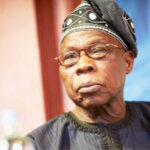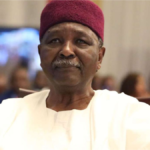Former President Olusegun Obasanjo has warned that if Nigeria does not get the 20 million out-of-school children back to school, the nation is “preparing for Boko Haram of tomorrow.”
He spoke in Abuja yesterday at the National Summit on Education Reform 2022 themed ‘Reimagining Tertiary Education in Nigeria: Issues, Challenges and Solutions’, organised by the Office of the Speaker of House of Representatives.
Obasanjo said the issue was that the country was cutting more than it could chew.
He asked: Who’s looking at our population ahead of time, five years from now and ten years from now, and what can we do about it? And apart from food which is very important, who are the people thinking about that and working forward on that. After food and after health, the next important aspect of our life is education.”
- One last dance with poverty before the elections
- Why Nigeria’s primary healthcare system not working well – FG
He said the country had to think about its growing population while planning to improve the education sector.
On where the nation missed the road, he explained: “We missed the road when the whole world is talking of free education, education for all. And we did not follow that. It was bad news. We, today, we have 20 million out-of-school children, almost 10% of the population. We continue to miss and we’re still missing. That’s a very bad one. Can we do anything about it? I believe we can.
“Those 20 million children that are out of school, we can get them back to school.
“If we do not get them back to school, we’re preparing for Boko Haram of tomorrow. It’ll happen as sure as daylight. What can we do? Where are these 20 million children? Where are they located? Can we have schools in the morning and afternoon to get them in at least for six years?
“In the period of six years where this is happening, we’d prepare for the transition from primary school to secondary school. And if we’re able to do that, we’ve started the process of lifting education, an instrument of nation building.
“I believe anybody who is able to go through secondary school has the basic to prepare himself as a working person. And that’s possible, and that must be the minimum. I believe Nigeria has the resources to able to get all the children of Nigeria through secondary education, all the children, no exception, male and female.”
According to him, “tertiary education requires attention, but also primary and secondary education. I believe to a large extent that is our problem. Education is not responsibility of government alone. It’s responsibility of all. What of parents, religious leaders, community?
“They all have responsibility on education of the child. I believe the starting point is this: Any Nigerian should never be deprived of education for lack of means”.
In his opening remarks, Speaker Femi Gbajabiamila said for Nigeria to reach its potential and achieve greatness, it must invest in her people, build ladders of opportunities that allow citizens to scale great heights and achieve their best dreams.
He expressed hope that the Senate would pass the Students’ Loan (Access to Higher Education) Bill he sponsored in 2019 which sought to provide access to education financing for qualified students.
The Minister of State for Education, Goodluck Opia, said increasing population and other factors were affecting the government’s efforts to adequately fund tertiary and basic education.
He said: “the Tertiary Education Trust Fund (TEFUND) had released over N2.3trn to the various institutions to create more infrastructure, support research and improve documentation, but with the increasing population, there was no much impact.
“As more universities were established to improve our access to the growing population, the dwindling economic realities made it difficult for government to sustain the adequate funding, to maintain the quality of teaching and learning, infrastructure as well as maintain the structures necessary for attracting global talents needed to sustain intellectualism.”
President, Academic Staff Union of Universities, Emmanuel Osadeke, alleged that the government was not sincere in funding the university education.
He said the government did not appreciate suggestions and advice from stakeholders, particularly lecturers who had been at the receiving end of its policies “which has crippled the system.”

 Join Daily Trust WhatsApp Community For Quick Access To News and Happenings Around You.
Join Daily Trust WhatsApp Community For Quick Access To News and Happenings Around You.


